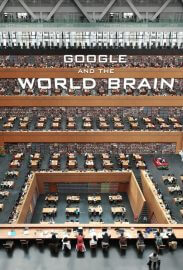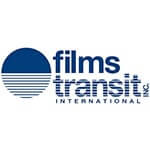Enjoy a free preview via Film Discovery! Click here !
Enjoy a free preview via Film Discovery! Click here !
Enjoy a free preview via Film Discovery! Click here !
Enjoy a free preview via Film Discovery! Click here !

https://www.filmplatform.net/product/google-world-brain
The story of the most ambitious project ever conceived on the Internet. In 2002 Google began to scan millions of books in an effort to create a giant global library, containing every book in existence. They had an even greater purpose – to create a higher form of intelligence, something that HG Wells had predicted in his 1937 essay “World Brain”.
But over half the books Google scanned were in copyright, and authors across the world launched a campaign to stop Google, which climaxed in a New York courtroom in 2011. A film about the dreams, dilemmas and dangers of the Internet.

Director’s Statement, Ben Lewis
For as long as I can remember, I always wanted to make a film about libraries. They are my favourite places to be. Serene, beautiful repositories of the best thoughts that men and women have ever had. Free to use. Far from the din of modern capitalism, libraries are the epitomy of the public institution. There is simply nothing bad about a library. It is my paradise.
For three years, I thought long and hard about how to make a film about the Internet. The Net is a unique phenomenon, unprecedented in history. It has brought us many marvellous things – instant access to all kinds of information, culture and communities. But I have also been struck by how the Internet also takes things from us, without asking – and for a long time, nobody has seemed to notice that. I wanted to make a film that alerted an audience to perils, as well as the paradise of the Internet. But how? The Internet is difficult to visualise – its stories revolve around emails, blogs and servers. Many of the newspaper articles that criticise it are sensationalist and written in the future tense or the subjunctive, i.e. they imagine a danger that might arise one day in the future. Documentaries need concrete stories, with personal testimonies, as well as explanation and polemic from theorists and commentators.
The ten-year story of Google Books seemed to offer me a narrative which could act as a spine for the film as well as a strong vocabulary of visual images. In terms of the narrative, there is a terrific arc. Google started out scanning amidst huge enthusiasm for the idea of creating a universal digital library. Gradually problems emerged – about copyright, national cultures and surveillance. There were a handful of heroes, authors and academics in America, Germany, France, China and Japan, who dared to take on the giant Google, the world’s most successful corporation ever! It was David v Goliath. In a kind of ending, an American judge ruled that Google’s scanning project was illegal in March 2010, although the creation of a universal digital library continues, largely in the hands of the libraries themselves. As for images, I will fill this film with magnificent tracking and crane shots of the world’s most beautiful libraries. Beyond that, there are hi-tech scanning factories, book depositories and book pulping centres, the precincts of ancient universities and the Tokyo Police Department.
The film will be inspired by the camerawork in “Bladerunner” and “Rampart”. I will be looking for saturated out-of-focus artificial lights in the background, slowly moving where possible. I will be filming on a Sony F3 to achieve a narrow cinematic depth of field. The film should glow with a sense of the future, by turns hi-tech and makeshift, just like the scanning machines. My key visual motif will be the slow passage of that strip of white light that we know from scanners.
Google Books offers me a narrative spine for the film, but it is not the only story I will tell. I will use it as a ‘washing line’ on which to hang tales of people whose privacy the internet breached, and whose businesses (record stores, art cinemas) it swept away. In that way this will be a film that will add up to a broad examination of the Internet.
Finally, I have been drawn to this subject by the combination of the ancient – the library – and the new – the Internet. There is a rare combination in this film of yesterday and tomorrow. A library is a repository of the past. The Internet is the technology of the future. Two worlds collide in this story which evokes the dramatic dawn of a new technological era for mankind, but one which might have its price.